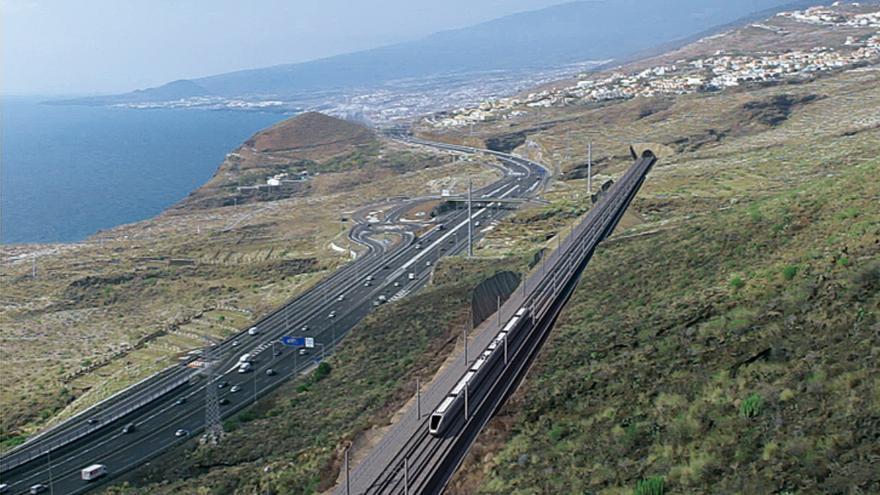
The Yes We Can group in the Council of Tenerife has insisted this Monday that the investment of some 2,200 million in the construction of the southern train is “crazy” and furthermore, calculating that 18 million annual trips were sold at the same price as the tramway -12.5 million were made in this medium last year-, the investment would take 30 years to recover.
The purple coalition assures in a note that it is an “exorbitant” amount of money for a project that is going to “destroy” the territory and many jobs linked to the bus lines that connect Santa Cruz de Tenerife with the south of the island .
For this reason, he defends the need to wait for the Island Plan for Sustainable Mobility in which the Cabildo de Tenerife is already working “to know the final conclusions and make the best decisions based on it”.
The insular group recalls that there are “alternative solutions” such as definitively promoting the bus-HOV lanes, accompanied by the reinforcement of the current public transport system, improving the bus lines and frequencies; bet on the electrification of the public transport system and improve the current infrastructures with more canopies and that they are digitized; the implementation of dissuasive car parks that encourage the use of collective transport or the development of bicycle lanes.
Also, and on the support of the Cabildo of Gran Canaria to the construction of a train point out that a report from the University of Las Palmas de Gran Canaria warns about the “economic unsustainability” of the project.
As for the criticism of the president of Fepeco, Óscar Izquierdo, they say that “what happens with other pressure groups, he is used to pretending to run the island from his chair as representative of the interests of the four who have always shared the money public, and do politics without standing for election”.
In addition, they continue “the serious thing is that it is decided to ignore, as in this casethe compliance of our group with the political program that we have worked on together with our militancy and for which we propose alternatives to the Southern train based on sustainable mobility”.
















